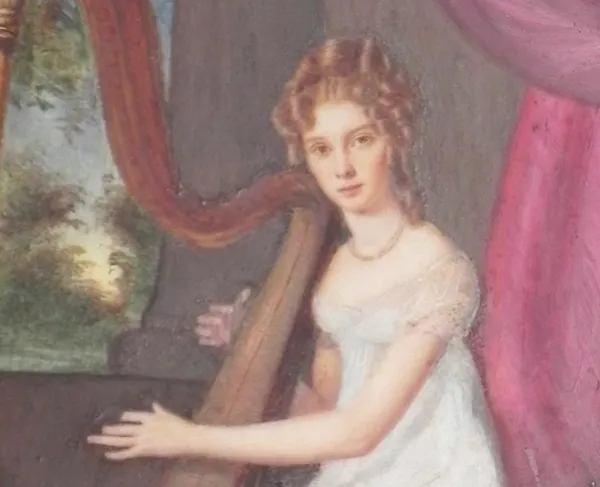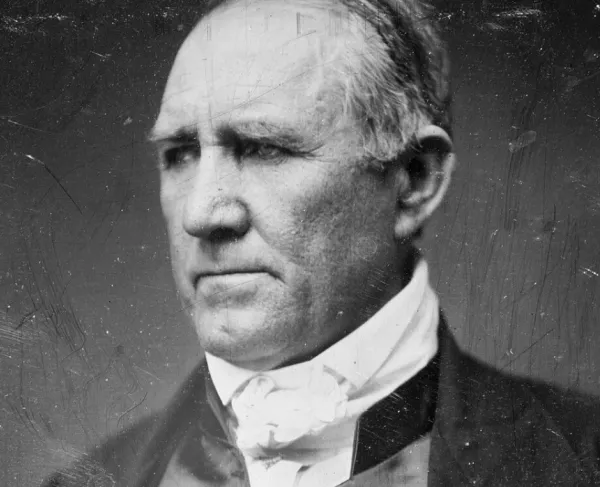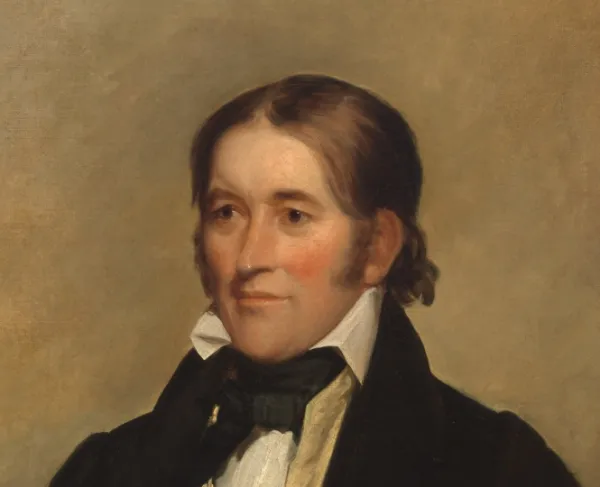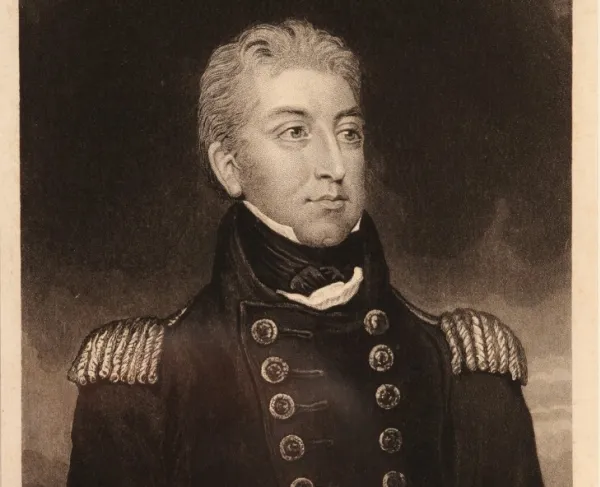Sophia Gough Ridgely Howard

Born on July 3, 1800, Sophia was the third daughter of Charles Carnan Ridgely and Priscilla Dorsey Ridgely. She had 13 siblings and grew up in a well-to-do family, living near Baltimore, Maryland. Her father had been the heir to childless Captain Charles Ridgely, Jr. and inherited a significant portion of the Hampton estate, and he expanded the agriculture and ironworks and made the house at Hampton a central point for lavish entertainment.
Sophia likely received an education considered beneficial for a girl and woman in the Early Republic Era of U.S. History. She would have learned reading, writing, and basic mathematics and then spent much of her early years learning skills for managing a home and probably exploring arts typical of a wealthy man’s daughter. A surviving 1816 painting of Sophia Ridgely shows her with a harp, likely a hint that she was a talented musician. Her father served as Governor of Maryland from 1815 to 1818, adding to the family’s social and political influence.
Sophia Ridgely married James Howard on October 3, 1820. Her husband was the son of a Revolutionary War officer, former Maryland governor and influential political leader. Sophia had four children.
Throughout her life, Sophia was part of a slavery society. Her father enslaved 350 people at the Hampton estate. However, over time, Sophia turned against slavery and supported forms of abolition. This probably came through religious influence, and she was known for her devote practice of faith in the Methodist Church. She likely talked with her father and other family members about the moral issues of slavery. Some family records suggest that Sophia Ridgely Howard’s advocacy for ending slavery created divisions in the family with her parents and siblings. Her husband seems to have been more support of her views.
Sophia died on April 18, 1828. James Howard wrote, “my inestimable wife…left this for another and a better world. Unaffected piety had led her early life to build upon that sure foundation which neither the storms of life nor the agonies of Death could shake.” Her influence and support for abolition changed her family, but only after her death. She was buried in the Ridgely’s family cemetery on the Hampton estate.
Ten days after Sophia Ridgely Howard’s death, her father added to his will. Charles Ridgely legally formalized that upon his death he would free some of the enslaved people held on his estate. Working within the limits of Maryland’s law at the time, Charles Ridgely promised to free all enslaved women between the ages of 25 and 45, all men between ages 28 and 45 and all children under the age of two. This codicil clause added the will resulted in freedom for at least 90 people, though it tragically divided families.
Ridgely family members acknowledged that Sophia’s influence and appeals to her father before her death lead to this partial emancipation of the enslaved people at the Hampton estate. One reminiscence reads: "She was the favorite child of Genl Ridgely and had more influence over him than any of the rest of them & it was owing to her intercession that he left his [enslaved people] subject to servitude only until they reached a certain age – after which they were to be freed."
Heirs in the Ridgely family went to court to contest the will and emancipation, showing that during her lifetime Sophia Ridgely Howard had believed differently and spoke up for freedom against the preferences of her family. Slavery did not end at the Hampton estate, and Sophia’s brother actually purchased more enslaved people to work there. However, Sophia’s influence and appeal for freedom—motivated by her faith and the early abolitionist cause—resulted in emancipation for at least 90 individuals.
Sophia Ridgely Howard lived a privileged life by social standards of the early 19th Century. She used her education to form opinions and advocated for abolition of slavery, encouraging family members to lead the way.





